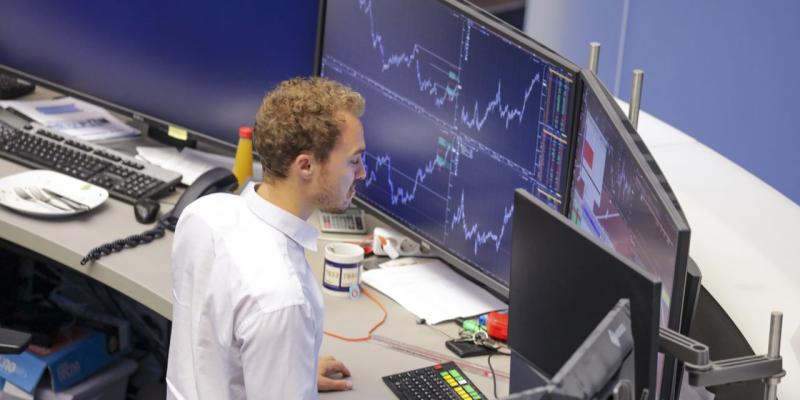Less Research? No Problem, Hedge Funds Say

Some investors say they are benefiting from new regulations that have reduced analyst coverage of stocks
ByJulie Steinberg and Paul J. DaviesJan. 13, 2020 7:26 am ET
- SAVE
- TEXT
Hedge funds are cashing in on an unintended consequence of European financial regulations on investment research: Less information about some stocks.
Put in place two years ago, the regulations, known as the European Union’s second Markets in Financial Instruments Directive, or Mifid II, require banks to charge fees for stock research that used to be mostly free.
Many sell-side outfits have scaled back their research as investors have spent less money on it since the rules were implemented. Some investors have built their own in-house research teams. The knock-on effect is analysts are covering some stocks in less depth or not at all. Hedge funds are seizing on this information asymmetry, sniffing out companies that have become cheaper due to their lack of coverage.Research ReductionSales of European research by sell-side andindependent analysts to hedge funds andasset managersSource: Integrity ResearchNote: 2020 figure is an estimate..billionJan. 3, 2018Mifid II goes into effect2015’16’17’18’19’200123456$7
Fewer companies being covered and fewer brokers facilitating trades in some stocks has led to less liquidity and sharper price swings, according to Pieter Taselaar, founder of Lucerne Capital Management, which focuses on European stocks valued between $1 billion and $15 billion. He and other managers of hedge funds and mutual funds say the spotty coverage has led to buying opportunities for undervalued stocks, particularly among small and midcap companies.
“It’s made small and midcap stocks more volatile. Stocks move more on results, and liquidity can become a problem sometimes,” said Martin Todd, who runs a £600 million ($784 million) fund at U.K.-based Hermes Investment Management.
Other factors are driving interest in European and U.K. equities. The economic uncertainty created by Britain’s decision to leave the European Union and subsequent weakness of the pound hurt smaller, domestically focused stocks in recent years. But new political leadership and a turnaround in the currency saw the FTSE 250 index of midsize and small companies rally versus the FTSE 100 index of very large companies at the end of last year.
Fund managers say Mifid II has exacerbated these trends.
“Mifid II definitely had a degrading effect on the coverage of smaller companies. You’re down to four analysts or fewer for companies in the £300 million market cap area,” said Adrian Gosden, portfolio manager for a U.K. fund at Swiss manager GAM Holding AG.
In general, those who want to invest in smaller companies have to work harder to understand the business. Touring factories or premises with a top executive can show investors how a company is really run, Mr. Gosden said. “You have to get in and see management themselves,” he said.
But investor access to companies has been curtailed by Mifid II, said Anne-Sophie d’Andlau, co-founder of London and Paris-based investment manager CIAM. Previously, investment firms could ask brokers to organize meetings with company management. Now, such meetings have to be paid for separately if they are arranged by brokers. As a result, some companies’ strategies and positions within their sectors aren’t being telegraphed to the market, leading to mispricing, she said.
The FTSE 250 index now has an average of 7.7 analysts per company, down from 9.3 analysts at the end of 2017, according to FactSet.
The number of analysts covering stocks in Europe, the Middle East and Africa at the world’s largest investment banks dropped by 18% to 900 from the end of 2018 to the middle of 2019, according to research firm Coalition.
Meanwhile, European sales of analyst research are projected to fall nearly 28% this year to $4.11 billion from the end of 2017, right before Mifid II went into effect, according to consulting firm Integrity Research.
The environment helped one of Mr. Taselaar’s trades, a bet on Italy’s Infrastrutture Wireless Italiane SpA, or Inwit, a unit of Telecom Italia SpA. Mr. Taselaar said he added to the position over the course of last year and benefited from the stock not being covered properly. Less in-depth research has been available on Inwit since Mifid II, he said. Inwit was up more than 46% last year.
A spokesman for Inwit said the company is covered by more than 20 analysts and that it constantly provides information to the market.
Liad Meidar, managing partner of London-based Gatemore Capital Management, began investing in British courier DX (Group) PLC in 2016. The company has undergone a multiyear turnaround and during its troubled period, which coincided with Mifid II, analyst coverage fell. Gatemore was able to benefit from its 35.6% ownership in the company as the stock climbed from a recent 2017 low. DX is covered by one broker currently. Before Mifid II it would have been three or four, Mr. Meidar said.
A spokesman for DX said the company’s turnaround is well-advanced.
Still, Mr. Meidar said the company’s turnaround hasn’t fully been appreciated by the market, and that investor sentiment can take longer to shift for the same reason some companies are undiscovered and thus cheaper in the first place. When there is good news, companies take longer to rerate, he said, as the word doesn’t spread as quickly.
Write to Julie Steinberg at julie.steinberg@wsj.com and Paul J. Davies at paul.davies@wsj.com